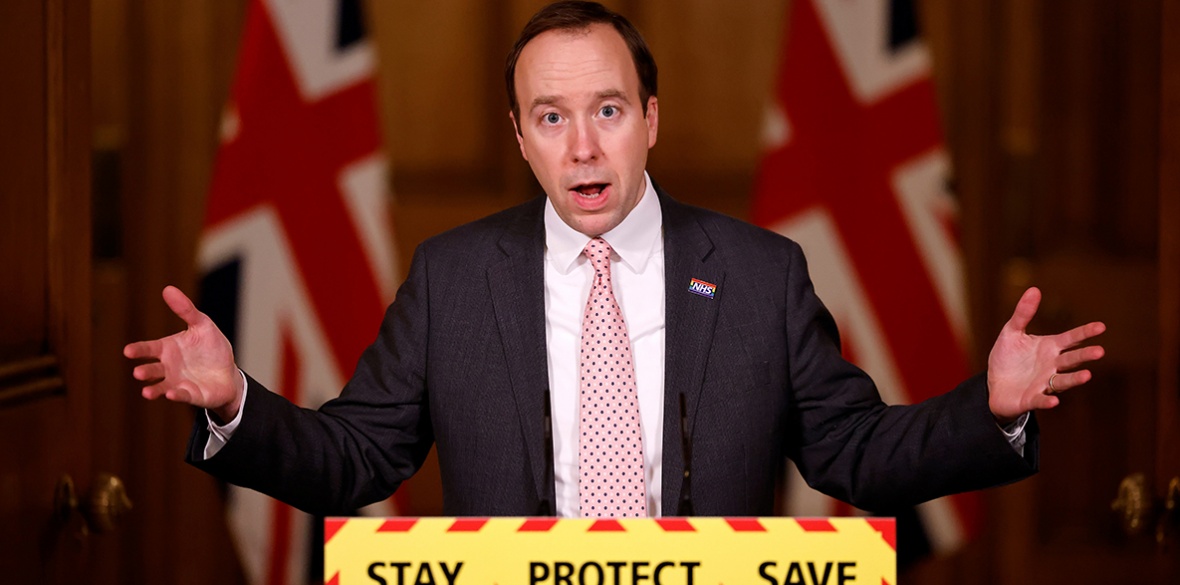NEARLY a quarter of a million people have waited over 12 months for NHS treatment as Britain’s health service struggles to contain the coronavirus pandemic.
A “world-beating” death rate has seen well over 100,000 British people die from the virus — an appalling statistic that entails tens of thousands of needless deaths. By comparison, just 25 have people died from Covid-19 in New Zealand, just 35 in Vietnam.
This amounts to a comprehensive failure of government health policy.
Britain’s Covid catastrophe is rooted both in government decisions such as the extent and timing of lockdowns, and in longer-term characteristics of the economy such as widespread insecure work.
But much of the failure stems from policies affecting the NHS specifically: underfunding, low pay and the hostile environment mean there are over 40,000 nursing vacancies in England alone.
A Royal College of Nursing survey last autumn found that more than a third of NHS nurses were considering leaving within the next year, an indictment of a government that has let them down throughout this crisis, from failing to provide them with proper personal protective equipment to denying them a pay rise that would make up for years of real-terms decline.
Decades of part-privatisation have created a system which is “both chaotic and bureaucratic,” We Own It found in a landmark study last year, which pointed to the way NHS Supply Chain’s outsourced procurement model “puts layers of corporate red tape between doctors and nurses who need PPE … and the companies making these supplies.”
At the same time, the good progress being made with mass vaccination shows that the NHS remains a uniquely trusted institution in Britain, and one that has delivered well by comparison with efforts across most other European countries.
Polls consistently show opposition to private-sector parasitism on our NHS, and the government knows it: hence the repeated assertions that the NHS “is not for sale” in trade talks, a mostly meaningless claim when so many of its services are already outsourced to private companies.
Matt Hancock has an eye to this reality when he presents the new white paper on restructuring the NHS as a reversal of the hugely unpopular Health and Social Care Act of 2012, which marketised the health service to an unprecedented degree.
Yet despite ministerial spin, the proposed reforms do not end privatisation in the NHS. The removal of competitive tendering requirements don’t ensure that all services are delivered in-house — which would indeed be a reform worth celebrating, especially given the dire consequences of handing public health contracts to inept and unspecialised privateers such as Serco and Deloitte.
Instead, as Dr John Lister of Keep Our NHS Public notes, the move leaves “huge contracts to be allocated without any competition or accountability” — in short, allowing the Tory practice of handing contracts to cronies, excused as an emergency measure during the pandemic, to be made permanent.
As for claims that it will allow for better integration of health and social care, funding models for social care are not addressed, so the gulf between the public health service and privatised care homes is as wide as ever.
If Labour retained the principled opposition to NHS privatisation of the Corbyn years, it would be in a strong position to point to these glaring problems in the white paper, and could take the lead in a nationwide campaign to truly end outsourcing that would win passionate support from health professionals and the public.
It does not, which is why shadow health secretary Jonathan Ashworth’s mumbled objections can be welcomed as “cautious support” by Hancock. Labour can only complain that reforms at the height of a pandemic are badly timed.
It’s a lame observation that demonstrates the sharper political acumen of a Tory Party that — to all our cost — understands rather better than Labour how to exploit a crisis.










